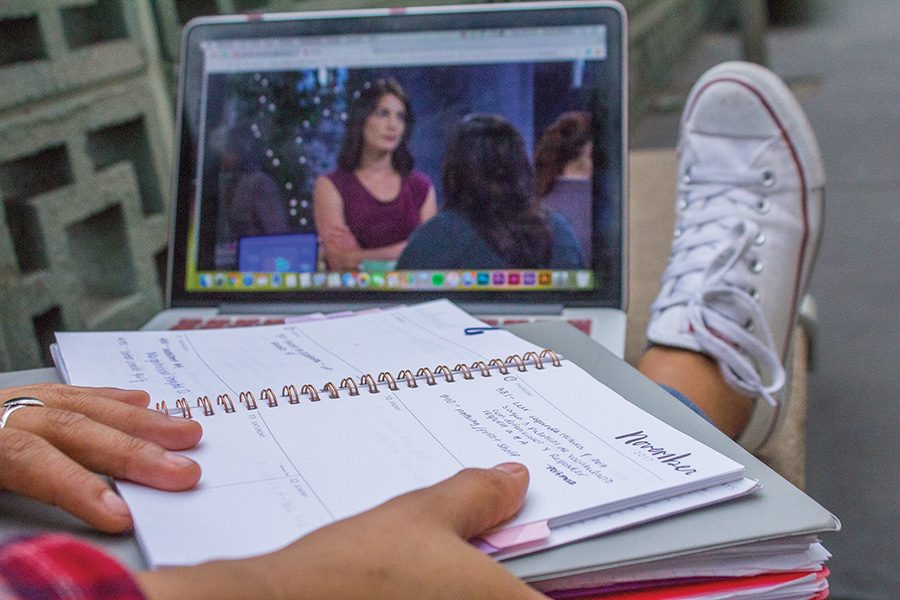Over the course of the fall semester, the eduroam network has undergone major technical enhancements to improve security and stability, changes San Diego State’s Information Technology said will significantly impact the network’s overall performance.
Director of Infrastructure and Operations Kent McKelvey said the eduroam network is a secure and encrypted network that provides access to faculty, staff and students with an SDSU ID. On campus, the network can host approximately 15,000 to 27,000 devices all at once. By increasing access points and managing the back end design, McKelvey said the network has become easier to use.
He said SDSU has 3,400 access points, being specific areas on campus where users can connect their devices to the network. As part of the new upgrade, the university has replaced approximately 2,000 access points and is looking to add more to outdoor environments.
“Outdoors is where we feel we really need to increase coverage,” McKelvey said. “We’re currently working on a project that replaces distress phones by putting access points on each one, which will provide really good outdoor coverage.”
Computer science junior Megan Chua said the increased performance of eduroam should benefit her ability to complete schoolwork.
“As a computer science major, most of my projects are done online and I would need a fast working network in order to finish my assignments,” Chua said.
McKelvey said, as part of the new upgrade, additional devices were added that manage the network so it can still be supported while maintenance is being done. Prior to these changes, students may have been notified of occasional network outages where eduroam service was not available while it underwent maintenance.
“We used to have to notify everyone that wireless is going to be down and have a window, but now we can do in-place upgrades where all the over devices will pick up the load and should not impact the user base,” McKelvey said.
McKelvey also said changes to private IP addressing have made it so users don’t have to continually renew their IP address.
“Private addressing allows us to have a larger number of IP addresses that allow clients to keep the same IP address for extended periods of time,” he said.
Speech, language and hearing sciences freshman Jesseca Serrano said, as more of her classes have moved away from paper assignments in exchange for online ones, she sees an increasing need for a reliable network on campus.
“As teachers try to cut down on paper usage, we are having to interact with more in-class and online assignments which makes faster and easier access to the internet extremely helpful to accomplish this,” Serrano said.
In contrast to eduroam, McKelvey said the SDSU Guest network is less secure for devices as it does not require authentication to use the network.
“SDSU guest has no ability to encrypt the traffic because we just don’t know who they are, so it’s much less secure than using eduroam,” McKelvey said.
McKelvey said the recent upgrades to the system should improve its functioning abilities.
“I think from a performance standpoint is where they will see the biggest change,” McKelvey said. ”When there are high loads on the network, it should perform better.”
SDSU Wireless on Twitter and other online resources such as status.sdsu.edu can provide students, faculty and staff with notifications on issues that can impact the wired network.
McKelvey said technical support for eduroam can be found at Wireless@sdsu.edu.
“If, for some reason, someone has bad coverage, we always want to know,” he said. “Someone can always address whatever that issue may be.”









